The Invisible Man (2020)
Directed by: Leigh Whannell
Written by: Leigh Whannell
Starring: Aldis Hodge, Elisabeth Moss, Harriet Dyer, Oliver Jackson-Cohen
USA
IN CINEMAS NOW
RUNNING TIME: 124 mins
REVIEWED BY: Dr Lenera, Official HCF Critic
Trapped in a violent, controlling relationship with Adrian Griffin, a wealthy scientist nd genius at optics technology, Cecilia Kass, aided by her sister Alice, finally escapes in the dead of night and hides in the house of their childhood friend James [now Alice’s boyfriend] and his teenage daughter Sidney. Adrian then commits suicide and leaves Cecilia a fortune. Cecelia tries to take back control of her life and starts to get her confidence back. However, she becomes sure that Adrian has figured out a way to make himself un-seeable and is stalking her, invading James’ house and the room where she sleeps – but nobody believes her….
Despite still being a fairly well known title, there’s actually only been one previous film of the same name, the wonderful 1933 comedy chiller starring the voice of Claude Rains, though there have been quite a few TV shows entitled The Invisible Man. In a way this is a strange one with which to commence another attempt at this Dark Universe thingie, because the films in the original Universal franchise tended to be heavy on humour and not much like the the other monster movies at all. But then this 2020 production gives the impression of being a stand-alone story with no real set-up for future installments except perhaps in one area. Maybe the remake of The Invisible Woman will link to it somehow? I know that Universal have said for the time being that these projects will stand alone, but if they draw big audiences I can see that changing. But then can this film really be considered a remake? It hardly takes anything from the H. G. Wells novel at all. Trailers gave the impression of a sort of melding of Sleeping With The Enemy and Hollow Man, though I’d say it’s closer to The Entity than any other invisibility-themed movie that I’ve seen. One thing’s for sure though – writer/director Leigh Whannell has crafted a genuinely tense and frightening effort here that had this writer on edge more than probably any new film since A Quiet Place – in fact probable more so – and which directorially more than fulfills the promise of Upgrade. This filmmaker knows how to scare. Unfortunately he’s not always so good at the writing side of things, with matters getting pretty clumsy in the final third, but let’s try to be as positive as possible at least for a while, because, as I’m sure you’ll agree, it gets harder and harder to be frightened these days when you’ve watched so much.
The opening title shot neatly announces the film’s updating of Gothic traditions, with waves crashing against cliffs, but the residence atop being not a dark gloomy castle but a shiny, state of the art mansion. We are immediately thrown into a bed-wettingly suspenseful sequence that’s so good that you may be worried that the rest of the film will live up to it. Cecelia drugs her controlling, abusive boyfriend Adrian, grabs a hidden bag filled with various necessities, and flees the house while dodging security cameras. Of course there are poorly placed objects for Cecelia to stumble over and to make us jump a little, but it’s all so masterfully done, from the use of lengthy long shots to the way it’s all silent [well, except for the odd interruption] until the music kicks in at just the right time, pumping up the excitement as she flees through the woods in a beautiful shot evoking so much all the great scenes of people running from something in woodland that we’ve seen. Running onto a road, a car coming turns out to be that of her sister Alice, and she gets in, but Adrian suddenly appears and the two barely escape with their lives. Phew! And I’d say that, for the next hour, perhaps even a bit more than that, the film certainly lives up to its beginning, and the two hour running time, which initially struck me as being far too long, isn’t felt. In fact I could have done with maybe a bit more of Cecilia trying to adjust to some kind of normality before things start happening again. But Elisabeth Moss immediately lets you feel her character’s trauma and vulnerability – granted, she’s done similar stuff before, but it’s obviously what she’s especially good at. Her reaction when she learns that Adrian has killed himself is especially believable.
Cecilia gets a lot of support from both James and Sidney, James being content to let her just laze around the house until she’s some way to recovery. With sister Alice though, things don’t seem entirely right, there’s a slight tension there though the film never tells us why. At first Cecelia can’t even go outside, and the first time she does so, she’s frightened by a male jogger so immediately has to go back indoors. Suddenly coming into lots of money courtesy of Adrian does lead to a few hours of happiness when she gives Sidney enough money to put her through college and the three celebrate, drinking and generally messing around until the camera pulls back to possibly adopt the viewpoint of somebody watching them, mere camera movement being able to suddenly change the tone from joyfulness to creepy. After this, Cecelia begins to sense that there’s a presence sometimes with her in the house. The first visit of who we know is Adrian works up an especially brilliant crescendo of terror, beginning with a Paranormal Activity– type scene of the camera totally static and observing the kitchen in which a couple of spooky things eventually happen, leading to some genuinely spine-tingling business with a bed quilt. It feels like Whannell has been doing this kind of thing for ages, but he’s primarily been a writer in terms of the horror genre up to now. And it’s not certainly not all tease and no release either – you also get some shocks, notably one of the most sudden killings in ages which provides a true jolt of the kind I thought mainstream horrors had forgotten how to do! Honestly, it’s a great moment that should make genre fans both jump and cheer at the same time.
More and more occurrences take place like somebody turning up a hob so that breakfast is burnt, architectural sketches disappearing when Cecelia goes for a job interview, and Alice receiving a rude email supposedly from Cecilia, only Cecilia didn’t send it. Adrian’s brother Tom reveals that Adrian controlled him as well as Cecilia and that he didn’t like his brother at all, but Cecelia starts to lose sympathy and support. We can totally understand why James eventually wants Cecelia out of his house, and the film makes it easy to see how others could think she’s going mad, even though we’re clearly asked to consider the systemic ignorance of and dismissal of abuse against women – yet without the film getting all political [hurray!]. Cecelia pays a visit to Adrian’s home, and there makes a most intriguing discovery. As things heat up more and more, the pace never falters as some surprises appear – believe me, if you think, like I did, that the trailer told the whole story, then prepare to have your mind changed. However, script-wise things do threaten to go off the rails somewhat in the final third, with some obvious plot holes that I won’t describe for fear of revealing too much, but look out for when, against logic, one character hides something in a particular place just so it can conveniently be used at the end. There’s a classic “why the hell don’t you use the gun that’s right in front of you”? moment. And the actions of not one but two characters in the finale seem somewhat inconsistent with what we know of them up to now. In fact throughout are signs that maybe Whannell should have given his screenplay one more pass, or let someone else take a look and do a polish. There’s a fair bit of inconsistency regarding cameras and the visibility of certain actions. It seems that if the audience isn’t supposed to know when Adrian’s nearby, we see no footsteps, but if the audience is supposed to know, we get footsteps. But to be fair these things only came to my mind as I walked home and was thinking about what to write in this review.
Whannell has clearly tried to make the issue of invisibility as believable as he could, with tech based on logic and seeming like it’s not far away in our future, though he fails to address how easily the power of invisibility can be foiled in a world where you can buy cheap infrared goggles over the internet. He commendably resists the temptation to join Hollywood’s unpleasant fad for man-bashing which has been a feature of certain other efforts of late. He’s mainly just interested in creating anxiety, something that he’s often able to do very simply just by having the camera, sometimes assuming Cecelia’s viewpoint but sometimes not, gaze at nothing in particular. In fact a hell of a lot of the film consists of this, but it’s so bloody effective due to the directing and Moss’s fantastic performance which is virtually a solo act for much of the time that it doesn’t matter. We only get two major action beats towards the end, one with hospital orderlies and security guards facing the wrath of our unseen antagonist, and I can’t help feeling a twinge of disappointment seeing as an invisible man can do so much [the 1933 incarnation crashed a train!] yet chooses to primarily employ use his gift in harassing his ex. However, the budget for this movie was really pretty low – $7 million – so large scale sequences were not a possibility, and truth be told it’s amazing how good it looks for $7 million, even if the hi-tech and super modern home clearly helps here. Some cheap looking cars are perhaps the only real giveaway, the borderline-ugly green/blue-heavy look being more because this is a Blumhouse production. I wish they would make more of an effort in getting their films to be more visually appealing [though the otherwise wretched Black Christmas made some attempt in this direction].
I’ve been against the idea of this Dark Universe ever since it was announced, especially when it seemed that Universal were trying to turn my beloved Boris Karloff, Bela Lugosi and Lon Chaney flicks into a franchise more influenced by the Marvel Cinematic Universe than anything else. But if they have to do this, then this is the way to go about it; update the basic concept in a way that it doesn’t invite unfavourable comparisons and can reflect current concerns. My star rating deliberately reflects the fact that I was able to partly overlook some of the really rather glaring faults of the screenplay because the film worked so darn well as a scare machine, an experience much aided by Benjamin Wallfisch’s combo orchestral/electronic score which helps in working up the viewer as a good horror score should and even has some emotive passages here and there. And as for the CGI when Adrian is partly seem – yes, it’s rather be erratic – sometimes good, sometimes not so – but one tends to get this for expensive productions too so it’s not really a major problem, especially as the film doesn’t really rely on these moments. In fact, it wouldn’t make a major difference if some of them weren’t in it at all. For much of its length, it’s almost minimalist as it exploits to the hilt what I think every true horror fan knows in his or her heart of hearts – that when you don’t see anything at all is when things are often at their scariest. Whannell has got a great future in horror as a filmmaker – and by god things are looking up for these Universal reboots too.

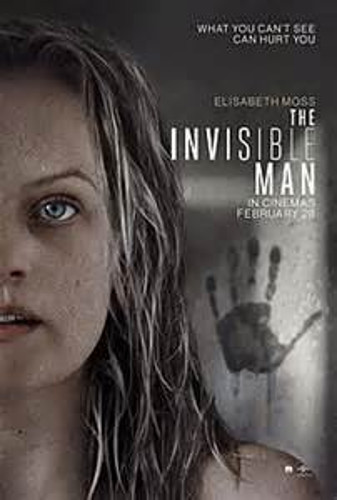
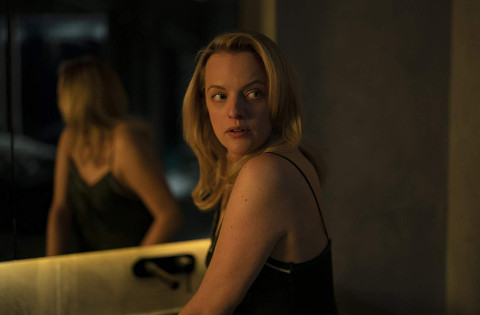
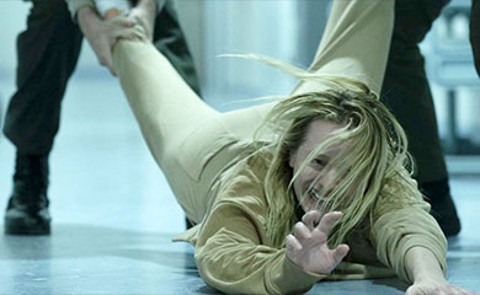





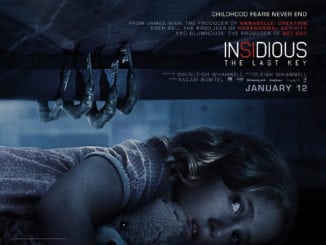
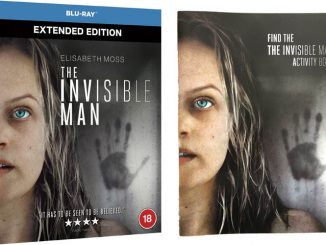
Be the first to comment